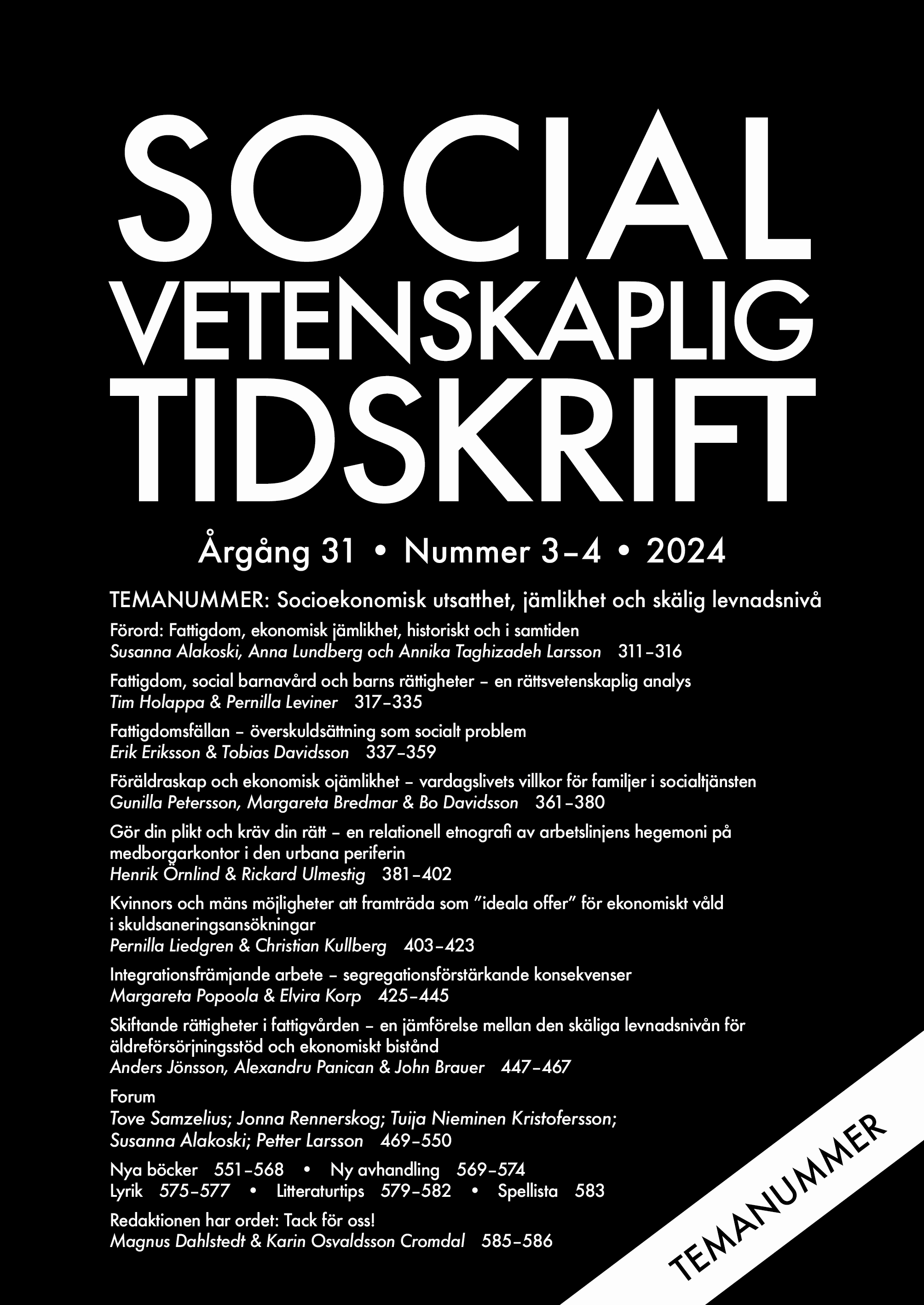Gör din plikt och kräv din rätt
– en relationell etnografi av arbetslinjens hegemoni på medborgarkontor i den urbana periferin
DOI:
https://doi.org/10.3384/SVT.2024.31.3-4.5630Nyckelord:
work-first, activation, relational ethnography, marginalised communities, hegemonic practicesAbstract
Navigating Duty and Rights - A Relational Ethnography of Work-First Hegemony in Municipal Service Centres in the Urban Periphery
The "work-first approach" (arbetslinjen) is a fundamental concept in Swedish welfare policy, shaping both progressive and regressive policy agendas. In contemporary political discourse, marginalised communities have become the focus of initiatives aimed at reinforcing the work-first approach among the unemployed through increased conditionalities. Consequently, the work-first approach has become a site of struggle over the direction of Swedish labour market and welfare policies. This article aims to analyse how the work-first approach is realised as a hegemonic practice within municipal service centres located in marginalised communities. Based on a relational ethnographic approach, we examine how the work-first approach is realised in daily interactions between residents and community guides, as people navigate administrative activation measures, experience hyper-exploitation, and manage life on the margins of poverty. Our findings highlight the fluid nature of the work-first approach, demonstrating how it is both reproduced and contested across different social contexts. We argue that the work-first approach, as a hegemonic idea, faces a significant challenge: increasing social conflict and coercion within the welfare system and labour market are undermining the active consent of marginalised groups—a consent critical for maintaining the work-first approach as a dominant framework in Swedish policy.
Downloads
Publicerad
Referera så här
Nummer
Sektion
Licens
Copyright (c) 2024 Henrik Örnlind, Rickard Ulmestig

Det här verket är licensierat under en Creative Commons Erkännande 4.0 Internationell-licens.
Allt material i Socialvetenskaplig tidskrift publiceras sedan 2022 (Vol 28 Nr 2) med omedelbar öppen tillgång (open access), under Creative Commons-licensen CC BY 4.0. Upphovsrätten till innehållet tillhör respektive författare.
Allt innehåll i tidskriften är fritt tillgängligt utan kostnad och får fritt läsas, laddas ned, kopieras, delas, skrivas ut och länkas. När innehållet används måste författare, källa och licens anges. Författaren kan fritt göra sin publicerade text tillgänglig på institutionella och internetbaserade arkiv, exempelvis sitt lärosätes digitala arkiv eller andra tjänster för detta.
Inga publiceringsavgifter tas ut vid publicering i Socialvetenskaplig tidskrift.


